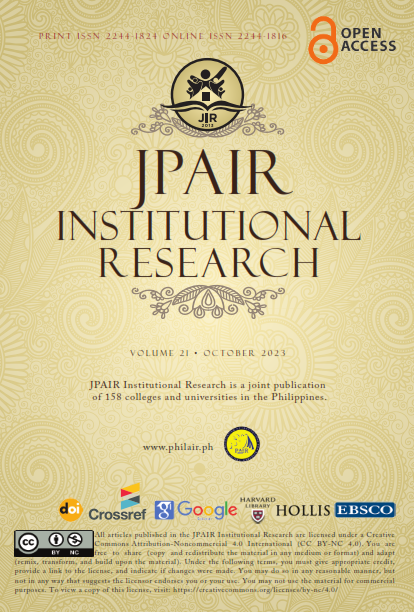Mathematical Misconceptions of Senior High School Students: Implications to Mathematics Curriculum
DOI:
https://doi.org/10.7719/872Keywords:
general mathematics, misconceptions, modular learning modality, statistics and probability, senior high school studentsAbstract
Misconceptions often pose significant barriers to effective mathematics learning. This study aimed to investigate the misconceptions prevalent in general mathematics and statistics and probability among senior high school students taught during the modular learning modality. Through a mixed-methods approach, involving quantitative surveys and qualitative interviews, mathematical misconceptions such as procedural knowledge, misapplication of formulas, internal barriers, misleading assumptions, and limited question understanding were identified. The study highlights the implications of these findings for curriculum design, teacher professional development, student-centered instruction, and the development of supplementary resources. Moreover, the study underscores the need for tailored interventions to rectify misconceptions, cultivate a deeper understanding of mathematical concepts, and foster accurate probabilistic reasoning among senior high school students during the new normal mode of instruction.
References
Aliustaoglu, F., Tuna, A., & Biber, A. C. (2018). The misconceptions of sixth-grade secondary school students on fractions. International Electronic Journal of Elementary Education, 10(5), 591-599. https://doi.org/10.26822/iejee.2018541308
Ang, L. H., & Shahrill, M. (2014). Identifying students’ specific misconceptions in learning probability. International Journal of Probability and Statistics, 3(2), 23-29.
Ay, Y. (2017). A review of research on the misconceptions in mathematics education. Education Research Highlights in Mathematics, Science and Technology, 12(1), 21-31.
Downloads
Published
Issue
Section
License
Copyright (c) 2023 Karen A. Quinio, Polemer M. Cuarto

This work is licensed under a Creative Commons Attribution-NonCommercial 4.0 International License.
Open Access. This article, published by JPAIR Multidisciplinary Research, is licensed under a Creative Commons Attribution-Noncommercial 4.0 International (CC BY-NC 4.0). You are free to share (copy and redistribute the material in any medium or format) and adapt (remix, transform, and build upon the material). Under the following terms, you must give appropriate credit, provide a link to the license, and indicate if changes were made. You may do so in any reasonable manner, but not in any way that suggests the licensor endorses you or your use. You may not use the material for commercial purposes.












